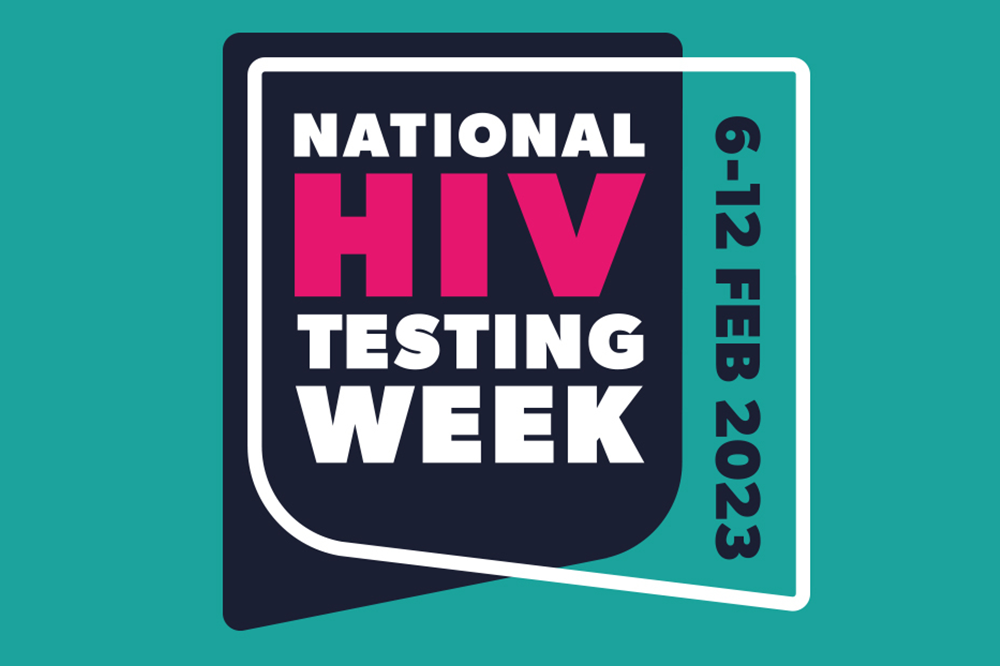National HIV Testing Week begins on Monday 6th February 2023 across the UK.
The nationwide awareness week is offering FREE and rapid HIV testing to help raise awareness and tackle rates of undiagnosed HIV.
Terrence Higgins Trust – the UK’s leading HIV and sexual health charity – will be offering free and confidential HIV testing in Chelmsford, Colchester, Harlow, Basildon and Thurrock.
Through a simple finger-prick blood test, you can find out if you have HIV in just a matter of minutes.
You can book a test by emailing essex@tht.org.uk
Why is testing important?
Unfortunately, HIV is slightly more common in Essex than the UK average.
Thanks to modern medicine, HIV is no longer as likely to lead to serious illness or death for those who are infected. They can go on to live long, healthy and entirely normal lives.
However, this is largely dependent on early testing and diagnosis.
If you’re concerned you may have been exposed to HIV, a free, fast and confidential rapid test is the best way to protect yourself and others.
How common is HIV in Essex?
In 2021, the rate of new HIV diagnosis in Essex was 3.5 cases per 100,000 for people aged 15 or over. The national average was 2.7 per 100,000.
Additionally, more than half (53%) of people who tested positive for HIV in Essex in 2021 were diagnosed at a late stage, meaning that damage to their immune system had already begun. The national average was 43%.
(Source Terrence Higgins Trust and Essex Sexual Health Service)
HIV infection is therefore of greater risk in Essex than some other areas of the UK.
National HIV Testing Week is a timely reminder of the need to identify the disease early to prevent illness.
What is HIV?
HIV (the Human Immunodeficiency Virus) damages the cells in your immune system and weakens your ability to fight everyday infections and disease.
If undiagnosed and untreated, HIV can lead to AIDS.
Acquired Immune Deficiency Syndrome (AIDS) develops when your immune system has been severely damaged by HIV. It is a potentially life-threatening condition as common infections can become deadly.
If you contract HIV, you may initially experience a short flu-like illness 2 to 6 weeks after infection. However, after this, HIV may not cause any further symptoms for many years but will continue to damage your immune system.
Many people with HIV do not know they are infected.
Sadly, there is no cure for either HIV or AIDS. However, there are now highly effective drug treatments that allow most people with HIV to live a long and healthy life without ever developing AIDS.
However, early diagnosis and treatment are very important.
Who is at risk of HIV?
The most common way of getting HIV in the UK is through having anal or vaginal sex without a condom.
HIV is found in the body fluids of an infected person. This includes semen, vaginal and anal fluids, blood and breast milk.
Other ways of becoming infected include sharing needles, syringes or other injecting equipment used for drug use, or transmission from mother to baby during pregnancy, birth or breastfeeding.
However, you cannot get HIV through casual or day-to-day contact, kissing, spitting or sharing a cup, plate or toilet seat. These are all myths.
Whilst the HIV virus can be transmitted from one person to another, AIDS cannot.
There are some groups and communities in which exposure to HIV is more common, including gay and bisexual men and black African men and women.
However, HIV does not discriminate and can still be common amongst heterosexual people and all ethnicities.
Effective HIV treatment works by reducing the amount of the virus in the blood stream to undetectable levels. This prevents it causing any damage and means that the levels of HIV become so low that the virus cannot be passed on.
Why get tested?
Testing for HIV puts you in control.
If you feel you may have been exposed to HIV, testing can put your mind at rest.
If you are infected, you can get the correct support and medication to ensure you do not become ill. You will be able to live a long, normal and healthy life and will not pass the virus to others.
The rapid HIV test involves a small and relatively painless prick in the end of your finger. A tiny sample of blood is instantly analysed – there and then – and in a few minutes you will have your confidential result.
National HIV Testing Week
National HIV Testing Week runs from Monday 6th to Sunday 12th February 2023.
It is coordinated by Terrence Higgins Trust on behalf of the Department of Health & Social Care.
Particularly for those in at-risk groups, getting tested regularly is something everyone can do to protect themselves and others. There is nothing embarrassing about making sure your sexual health is a priority!
Testing is quick and easy and – if your results do come back positive – the Terrence Higgins Trust and Essex Sexual Health Service can offer all the support, advice and information you need.
To book a FREE rapid HIV test, please email essex@tht.org.uk
For full sexual health screening or access to contraception, contact Essex Sexual Health Service on 0300 003 1212 or visit www.essexsexualhealthservices.org.uk
For more information about National HIV Testing Week, go to www.startswithme.org.uk/


